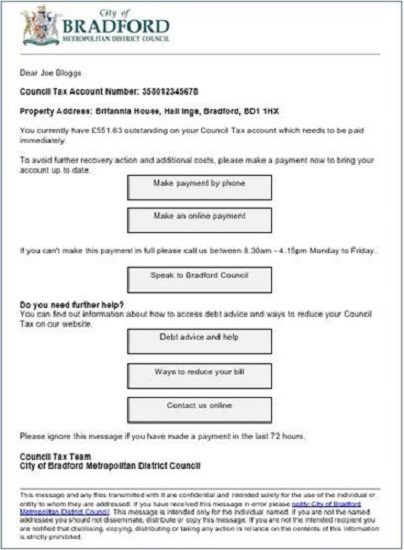If you are moving home in the near future our moving house checklist is exactly what you need. A house move is a significant project even for a Project Manager! As the title would suggest our moving house checklist UK provides detailed guidance about everything you need to manage a house move.
Note: this moving home checklist is intended to use for UK domestic moves only. Although much of the content would still be useful it is not specifically written for office moves and/or international moves.
1) Create a plan – ideally in a spreadsheet
We cannot emphasise enough that a house move is a sizable undertaking and a major project in its own right. Planning will reap rich rewards and reduce the risk of forgetting individual tasks.
Either buy stationery such as a lever arch or manila folder or even better create a spreadsheet. Whatever you decide, a great start is considering everything we mention in our detailed comprehensive checklist for moving house in the UK below.
In your spreadsheet, you can add all the tasks in our house moving checklist below with target dates and then manage each of them through to completion.

Our moving house checklist to plan for a successful removals project
2) Choose a professional removals company
You are unlikely to complete a large house move successfully without employing a professional removals company. They can make the difference between a stress-free move and a stressful move.
We would recommend you answer all of the following questions whilst researching a professional removals company as a part of your checklist for moving house:
- Attitude of staff – are the removals staff friendly? Could you see yourself working with them?
- Fair contractual terms – are the contract terms fair? (e.g., policies such as deposits, cancellations and waiting periods, etc.,)
- FOC survey – is a free-of-charge survey available?
- Insurance cover – is the cover adequate? Are the terms attractive? Are there upgrade options (e.g., if your items are worth more than their Goods in Transit insurance)
- Online reviews – can you find good online reviews?
- Packing service – is this service available? Can you buy packing materials from the removal company?
- Payment terms – are attractive payment terms available (e.g., do they accept card payments and not insist on cash only?) and
- Personal recommendations – if you know anybody who has moved with the removal company, it is difficult to beat a personal recommendation
- Value for money – is the quote you have received value for money?

Reading this guide and choosing a professional removal company are important steps
3) Obtain a removals quote
Once you have selected your removals company (and assuming you have checked they are value for money!) you will then need to obtain a firm removals quotation. This leads to a signed-off acceptance form, which details exactly what will be moved and when.
Many factors will influence the price quoted, some of these include:
Access restrictions
These include access to the property by road difficulties (e.g., narrow roads), parking restrictions, removals with lift-only access, and second-floor removals.
The day chosen
Often moves on Fridays and Saturdays costs more as demand is higher. Sundays are often unavailable with many removal companies. The lowest-cost removal days tend to be between Monday and Thursday.
Fragile items
Although usually within the price, a larger number of fragile items (e.g., China, porcelain, etc.,) can influence the price and usually require specialist packaging materials and techniques.
Heavy items
Certain heavy items may require individual pricing within the overall quotation, e.g., gym equipment, large tables, pianos, etc.,
Hours of work
The hours worked will be a major factor in the cost. Hours charged will include all hours onsite, as well as travel time.
Insurance value
The higher the value of items being moved, the higher the insurance valuation needs to be. If this exceeds the standard insured value of the removals company, they will need to upgrade and charge an additional fee.
Mileage fees
Removal companies charge a fee for vehicle usage, naturally, on longer distance removals this is higher.
Note: a failure to declare certain facts is likely to change the removals quote on the day, e.g., unknown access restrictions, undeclared high-value items, undeclared heavy items (e.g., a piano), etc., Worst case scenario certain changes may be so profound the move is cancelled, and a cancellation fee is applicable.
4) Book a removals date
In conjunction with agreeing on your removals price and signing off an acceptance form, you will also need to book a removals date. Circumstances vary but if you can we would recommend having at least one month to plan your move, ideally, 3-6 months in advance.

Book your removals date as soon as you can
Managing stress levels and anxiety is important, there is a lot of work to do and booking later may mean your removal company is unavailable.
Moving Advantage for renters
If you are a renter, you have the potential advantage of spreading your move out across several days, e.g., moving into your new property on a Monday and spreading the move over several days.
This allows you to ensure your new property is cleaned, items such as furniture and beds are put in place, etc. In moves like this, it could be that several “Van and Man” loads are planned rather than one large removals lorry!
5) Book time off work
You must notify any employers about your move date as soon as you have a firm date. This is forgotten by some movers on their moving house check list, but some employers are more flexible than others, so it is best to have time booked off with employers ASAP.
6) Find a new school
If you are moving out of the local area you will need to find a new school. Probably about forty five minutes each way is the maximum time most people can drive to school. Of course, many families decide not to move if it means changing schools.
If your move does require a change of school, it is essential to get your children’s places booked ASAP as places in many schools are tight.
7) Decluttering
Do not forget to declutter, this needs to be a part of any house move, especially if you are downsizing! What should you declutter – essentially anything you do not use, that has no value or is broken? Be honest, how many drawers, cupboards, and storage units are filled with junk and belongings you no longer use?
Blighting almost every house, clutter such as old clothes, electronics, and furniture is something that brings many a strange sort of comfort but actually is a nightmare when moving home. Ultimately decluttering will make the move easier, there will be less to pack and the removal volume and bill will be lower.
We are not talking all to the rubbish dump here either! Much of your decluttering could prove welcoming to friends or family (particularly if family-related) or charities eager for donations. So, devise a strategy of gift, donate or tip. If you do not have access to transport, you could hire a “van and man service “, who could co-ordinate all the decluttering for you.
8) Packing
Packing cannot be underestimated and is a major source of stress if not managed correctly. The secret to success is packing progressively and not delaying everything to the last few days and also having ready access to high-quality packing materials and equipment.
Who can complete the packing?
The packing is a fundamental part of the project and can be completed by i) Immediate family, ii) Extended family and friends or iii) By the removal company (read our guide here).
Packing materials and equipment
Assuming you are packing yourself, do not be tempted to buy low-quality packing materials and equipment. It is always advisable to buy these from your removals company, generally, these will be competitively priced and of the quality required.
A few examples of the packaging materials and equipment needed include bubble wrap, cardboard (or plastic) boxes or crates (small, medium, and large), corrugated paper, fabric blankets, foam packing sheets, labels, marker pens, masking tape, scissors, Sellotape, and storage bags, etc.,

Complete your packing with precision and care
Packing process
Your decluttering should have (ideally) finished by the time you start packing, this will reduce the amount of time the overall packing takes. Pack ASAP – whatever you can pack, get it packed! If you can live without it until the move, get the item packed. Here are some practical tips and advice:
- Box room by room – progress packaging logically “room by room”
- First day essentials box – have a box with the items you will need on the first day, these are identified in our “On the day you move in” section below
- Fragile items – ensure fragile items are packed with care and have a protective layer of blanket, foam, tissue, etc., protecting them during transit
- Label every box – add labels or mark cardboard boxes with permanent marker to clearly identify where the box needs to be taken by the removal company
- Monitor helpers – it is tempting to get friends and family to help. This is understandable to share workloads if they help monitor them (a little, particularly children) to ensure they are packing correctly
- Use quality materials – you are transporting your “worldly goods”, ensure you use quality materials to treat your possessions with the care they deserve

Do not forget to revise your council tax information
9) Notifying everybody of your move
Notifications of your move are essential both pre and post-move. This warrants a major article guide in its own right, so please read our “Moving House Notification Checklist” blog article, where detailed information and guidance are provided on this topic.
Some of the most important areas to notify in our opinion are detailed below:
Broadband
If you intend to use the internet (and most people do!), transferring Broadband is seamless. With Sky and mobile companies, this should be easy to organise, with cable you need to check if your new property offers this type of connection
Local authorities
Contact your local authority about the following:
- Council tax – moving home (particularly when moving to a new council) requires an address change. Different properties (and councils) charge different council tax fees. It is best to get this accurate and avoid problems later
- Housing benefit – if you move home (particularly outside council borders) your housing benefit will be implicated. You may lose money if you fail to notify and may end up owing money
Electoral roll
If you plan to vote in upcoming elections, you need to update the Electoral Roll
Insurance
Various insurance companies need to be notified, especially:
- Car – your car is insured by address and characteristics (e.g., garaged, parked on the drive, etc.,). You are effectively uninsured if you move and do not change your car’s insured address. House moves change insured risk of a car
- Home – naturally your home insurance is directly tied to your home!
Landlord
This is obviously essential if you are moving!
Online shopping
Wherever you shop online (e.g., Amazon, Ocado, etc.,) you need to update your address details, otherwise you have the risk of deliveries going to your previous address!
Redirections
Ensure your post and landline phone number (where you are allowed to do this) are redirected
V5C Vehicle Log Book
You must notify DVLA of your move, failure to do so can incur a £1,000 fine
10) Understand your new property
Many buyers only find out about their new property after they move in. Before you move in, try to understand all of the following, this is not always possible to find out, it depends on how cooperative the previous owners are.
Try to find out information about the following:
- Stopcock – where is this valve which controls the mains water supply
- Instructions – where are instructions for appliances such as (boiler, oven, etc.,)
- Gas and electricity meters – where are these located?
- Boiler and thermostat – its location and also how is this managed?
- Fuse box – where is this located? and
- Internet connection – how is the property currently connected to the Internet
11) On the day you move in
There is a lot to consider on the day you move in, so it is best you plan ahead! Consider all of the following:
- Bins collection date – find out what date your bins are emptied, it is also a good chance to get to know your neighbours!
- Change locks – naturally needed for property security, at least do this for the main doors. Also, gain access to keys for every cupboard, door, and window
- Chargers – we cannot manage without technology these days. Ensure you know where your phone and laptop chargers are to avoid frustration
- Children and pets – these will need looking after on the day of the move
- Deep clean of the property – this is easier with no furniture in the property, you will need access to cleaning supplies, a vacuum cleaner, and bin bags, etc.,
- Duvet and bedding – needed for a comfortable first night of sleep in your new property
- Everyday essentials – have access to everyday essentials such as hot drinks (coffee, a kettle, milk, mugs, sugar, and tea), also cold drinks, and kitchen and toilet rolls
- Gas and electricity meter readings – take these on the day you move in and
- Temporary furniture – if you plan to place furniture, at least have access to deck chairs and a table to eat at, etc.,
12) Unpacking at your new property
The final part of our house moving checklist is one of the latter stages of a house move – the unpacking. If the labelling was correct the boxes should be in the right rooms. There is a science to unpacking and boxes tend to be unpacked often out of necessity. Hopefully, unpacking can be a little more leisurely and at the pace you choose.

A family unpacking after a successful house move
Contacting Expert Moves about our UK moving house checklist
Well done if you have read this far, we did promise our checklist for moving house would be comprehensive! We think this moving house checklist has everything you need for a move in the UK but let us know your feedback after using it.
Why not call Expert Moves on 0333 090 7997 (landline) or 07405 648478 (mobile) to discuss and book your upcoming move? We need your contact details, so you could complete these on our contact page and we will call you back at a convenient time. View our latest social media posts at this link. Receive a FREE customised quotation when you complete our instant quote removal form.
Image Credits: Cottonbro Studio, Prateek Katyal, Mohamed Hassan, Kampus Production, Bradford Council and Cottonbro Studio


0 Comments